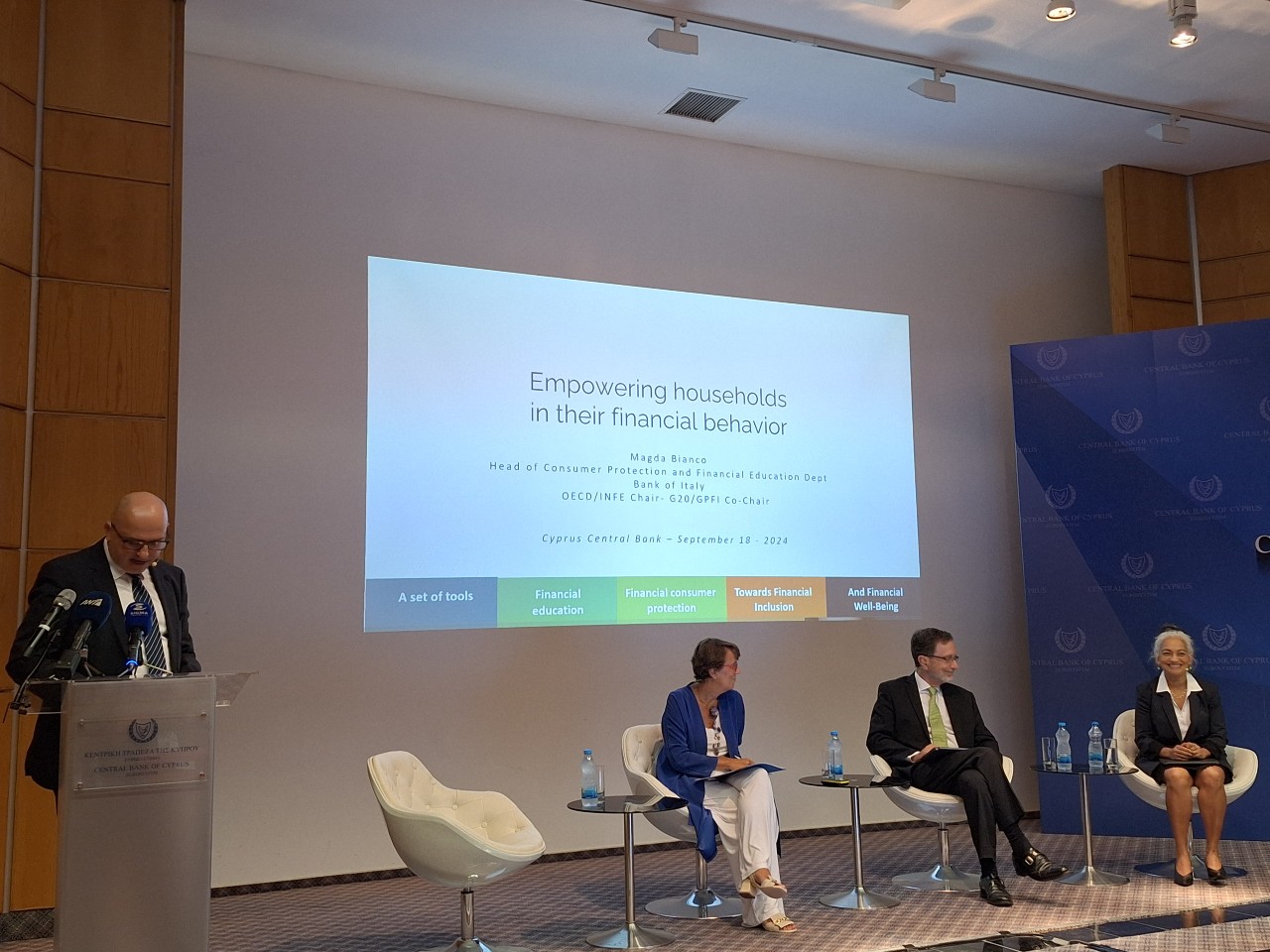Financial literacy and robust regulation are essential to strengthening household financial behaviour, according to a number of experts at a conference organised by the Central Bank of Cyprus (CBC) and the University of Cyprus’ Economics Research Centre (CypERC).
Opening the conference, CBC governor Christodoulos Patsalides outlined Cyprus’s national strategy for promoting financial literacy.
He stressed the importance of this for helping individuals “manage their finances, budget effectively, save wisely, and invest securely.”
Patsalides highlighted the results of a 2023 survey that exposed significant gaps in financial literacy across Cyprus, warning that the lack of basic financial skills is leaving many Cypriots unprepared to handle their finances, especially in times of crisis.
“There is a clear need for targeted financial education,” he said.
Moreover, he mentioned that “Our national strategy focuses on integrating financial literacy into schools, promoting lifelong learning, and enhancing digital financial skills.”
He emphasised that financial literacy is not merely “another policy to be implemented,” but a vital necessity for the economic well-being and stability of households, especially in today’s increasingly complex financial landscape.
Referring to the Organisation for Economic Co-operation and Development (OECD) survey, conducted alongside the CBC, Patsalides confirmed that “financial literacy in Cyprus remains worryingly low,” a finding that mirrors results from previous surveys.
In addition to financial education, Patsalides stressed the importance of regulatory frameworks that protect consumers from financial risks. Reflecting on reforms introduced after the 2013 financial crisis, he noted that “Cyprus’ financial system is now more resilient.”
The governor’s remarks were followed by a panel discussion moderated by Alexandros Michaelides of Imperial College.
The panel featured Magda Bianco, President of the OECD’s International Network on Financial Education, Michael Haliassos of Goethe University, Jumana Saleheen, Chief Economist at Vanguard Asset Management, and Diane Thompson, Senior Advisor at the US Consumer Financial Protection Bureau.

Bianco underlined the dual role of financial education and consumer protection in fostering financial inclusion.
“At the individual level, financial education increases resilience,” she explained, adding that “at the macroeconomic level, it can help implement reforms and address inequalities.”
As a best practice, she suggested that financial education be made compulsory in schools.
For adults, she recommended reaching them via traditional media and social media channels. In terms of consumer protection, she stressed the importance of “transparent regulations” to ensure fairness.
Haliassos highlighted the shared challenges facing households in Greece and Cyprus, including demographic pressures, the increasing responsibility for financing their own retirement, and the impact of inflation on wages.
“People tend to focus on real estate because they believe that land and houses only go up in value,” he said, but he cautioned against this over-reliance on property.
Many households, he observed, avoid financial risk, preferring to keep their money in deposits or at home, and there remains a demand for strong state pensions alongside a general mistrust of financial institutions.
Haliassos emphasised the need for financial education to address these trends. “Low financial literacy is linked to lower savings for retirement, less wealth accumulation, and less participation in the stock market,” he explained.
Saleheen echoed these concerns, suggesting that low-cost, simple financial products could help empower households in their financial decisions.
“While financial literacy is vital,” she said, “there are limits to what education alone can achieve. Policy regulations are really where we can move the needle in terms of household confidence in the financial system.”
Thompson, for her part, argued that financial literacy will always lag the pace of innovation in the financial markets.
“It’s important not to blame consumers for failing to keep up,” she said, adding that “the responsibility lies with regulators and industry to create conditions that allow for responsible choices.”







Click here to change your cookie preferences